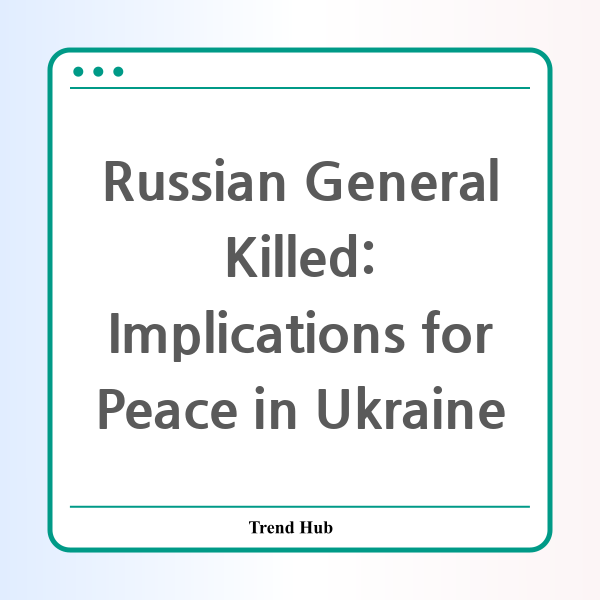* This website participates in the Amazon Affiliate Program and earns from qualifying purchases.

In a dramatic turn of events that could have far-reaching implications for the already volatile situation in Ukraine, a senior Russian general has been killed in a car bombing just outside Moscow. This incident, which took place in Balashikha, has raised concerns about the safety and stability of military officials within Russia, particularly as Donald Trump's special envoy, Steve Witkoff, meets with President Vladimir Putin for crucial peace negotiations.
The general in question, Yaroslav Moskalik, who served as the deputy head of the Main Operations Directorate of the General Staff of the Russian Armed Forces, was reportedly killed by an improvised explosive device (IED) packed with shrapnel. Authorities have confirmed the nature of the explosion, but as of now, no group has claimed responsibility for the attack. This assassination marks another significant escalation within the already tense framework of the Russia-Ukraine conflict.
The timing of this assassination is particularly noteworthy, occurring just hours before key discussions aimed at brokering a cease-fire in Ukraine, led by Witkoff. These negotiations represent a potential turning point as both sides seek to address ongoing hostilities, yet they are set against a backdrop of violence that complicates any prospects of peace.
As Witkoff and Putin convened at the Kremlin, the implications of Moskalik's death could cast a long shadow over their discussions. Moskalik's assassination not only underscores the internal threats faced by military leaders in Russia but also emphasizes the complex, multifaceted nature of the conflict. This incident follows a pattern of targeted attacks on Russian military personnel, which raises questions about security protocols and the stability of the current regime amid ongoing international scrutiny.
The Russian Investigative Committee has launched a criminal probe into the bombing, with forensic experts dispatched to the scene. Analysts suggest that this incident could reflect a heightened wave of dissent and instability within the Russian military establishment, indicating potential fractures at a time when unity is crucial for addressing external threats.
Moreover, the discussions surrounding peace negotiations are increasingly sidelining other international actors, particularly European nations. Claims of diverging proposals between the US and Europe on key issues like security guarantees highlight the complexity of achieving a consensus. Witkoff’s meetings are critical, as they may determine the direction of future negotiations and, ultimately, the fate of peace proposals.
This latest development in the ongoing conflict reveals that while diplomatic efforts are being pursued, the reality on the ground remains fraught with violence and unpredictability. As both sides navigate through these treacherous waters, the assassination of General Moskalik serves as a stark reminder of the stakes involved and the urgent need for a comprehensive and sustainable resolution.
In conclusion, the death of a high-ranking official such as General Moskalik not only raises alarm bells within Russia but also signals an increasingly dangerous phase in the ongoing conflict with Ukraine. Moving forward, the international community will be watching closely to see how this incident influences the peace talks and what it means for broader regional stability.
* This website participates in the Amazon Affiliate Program and earns from qualifying purchases.